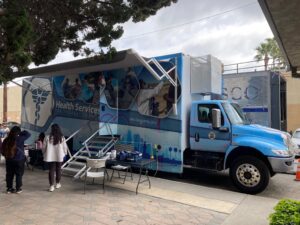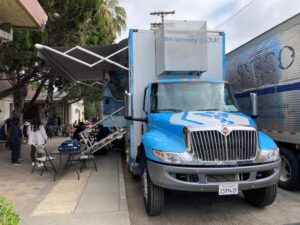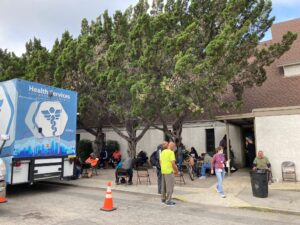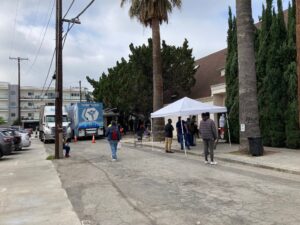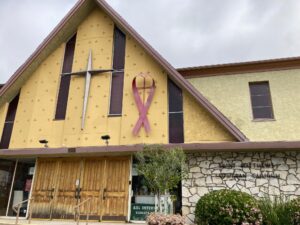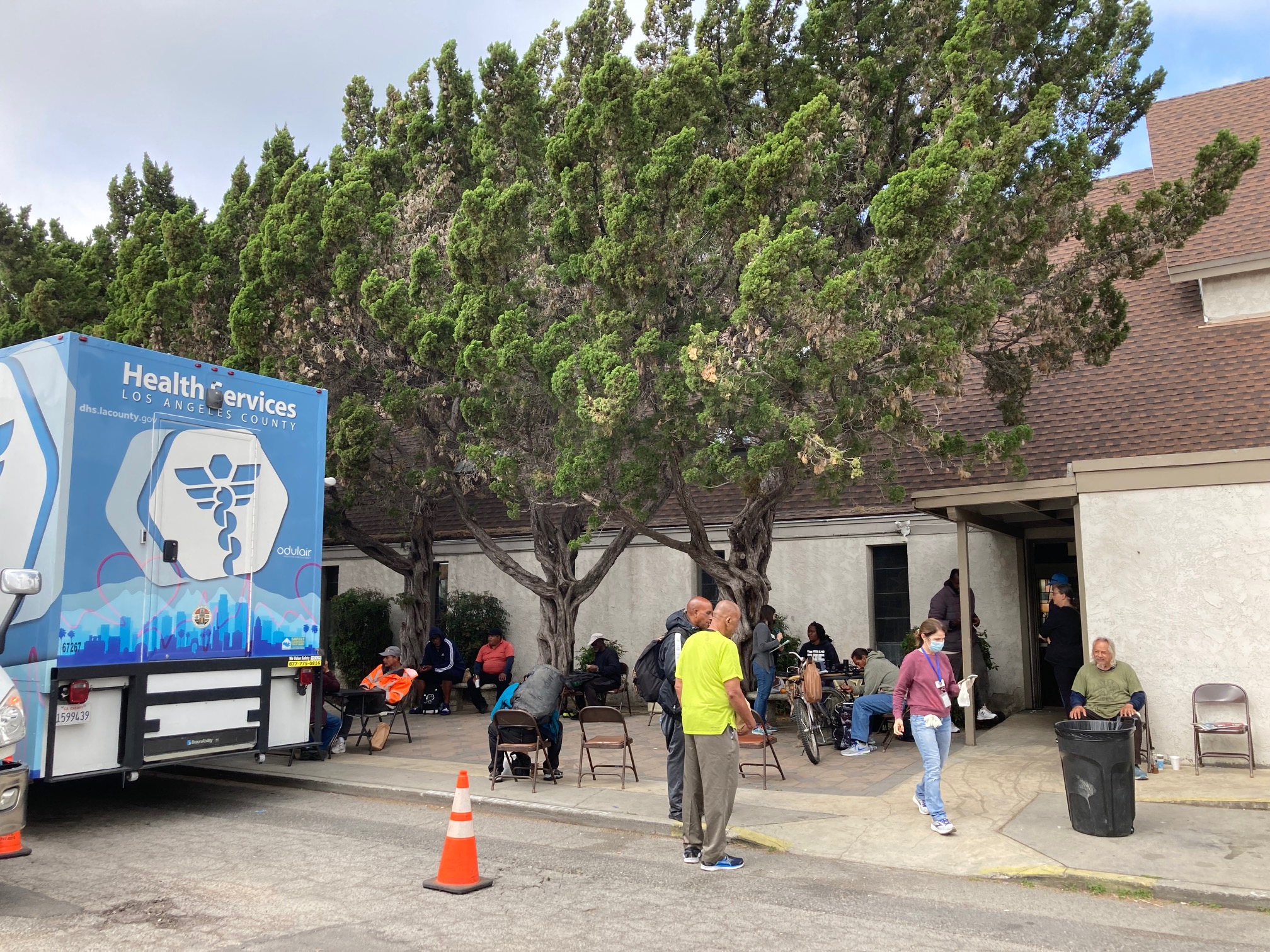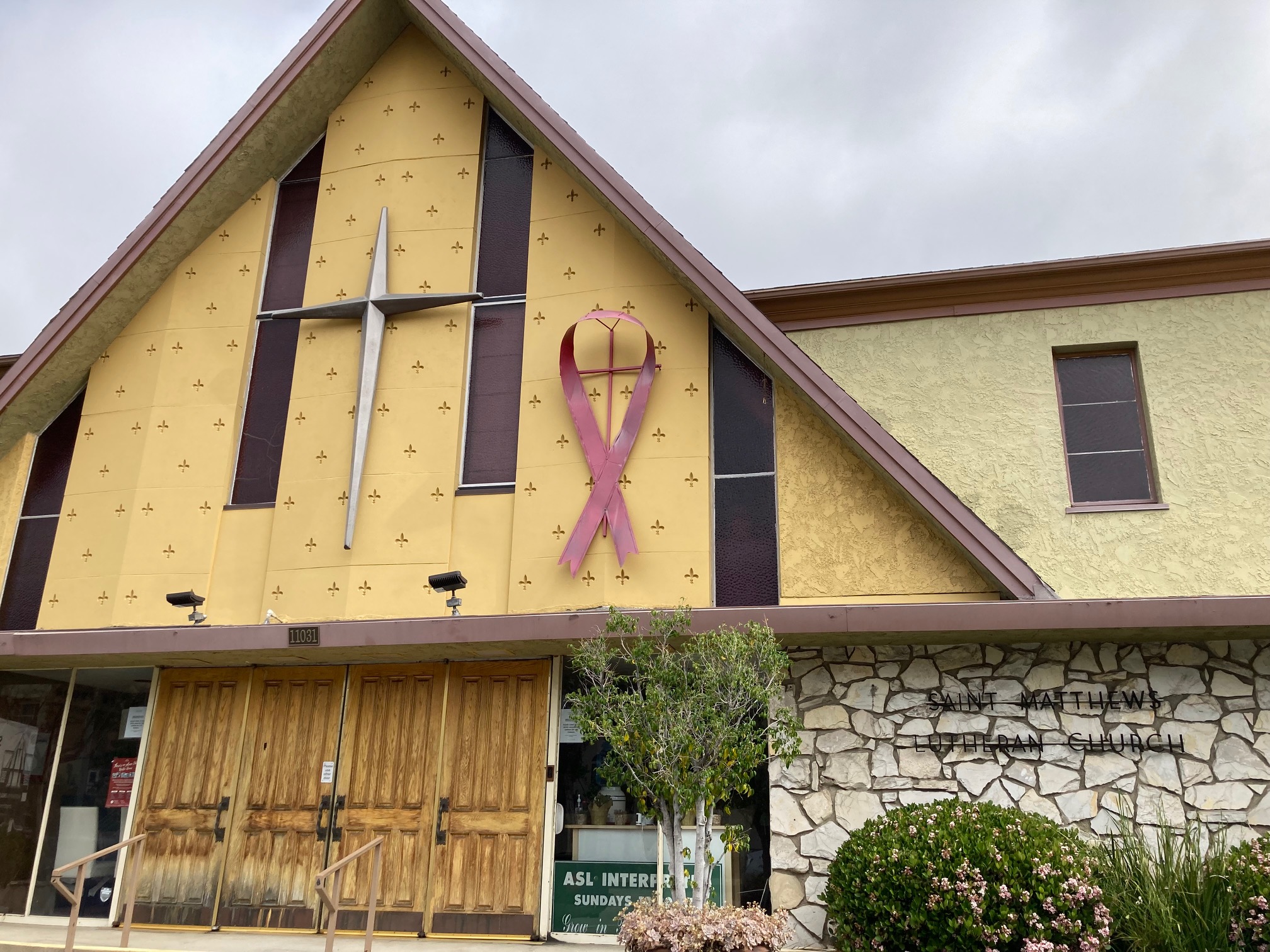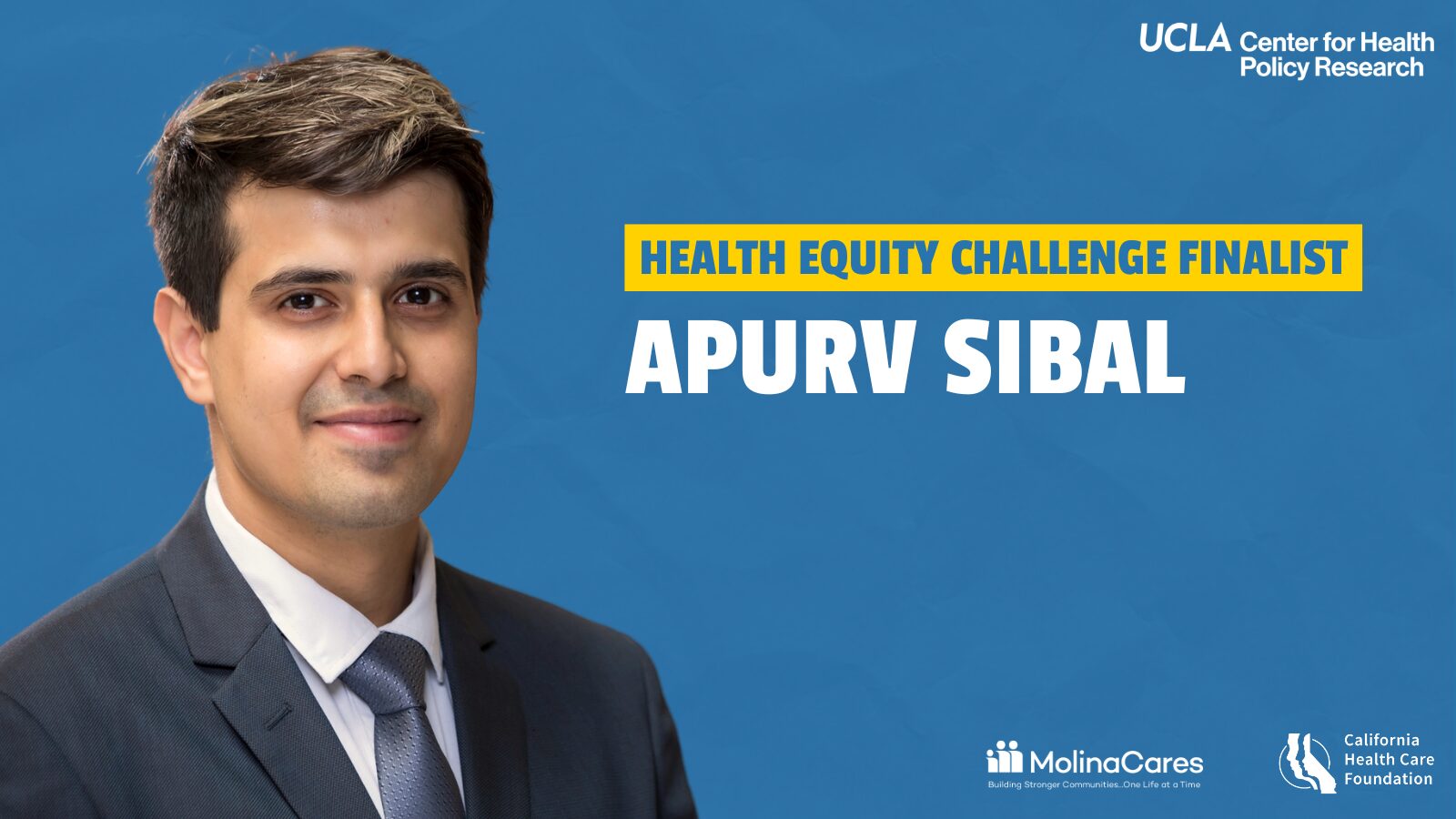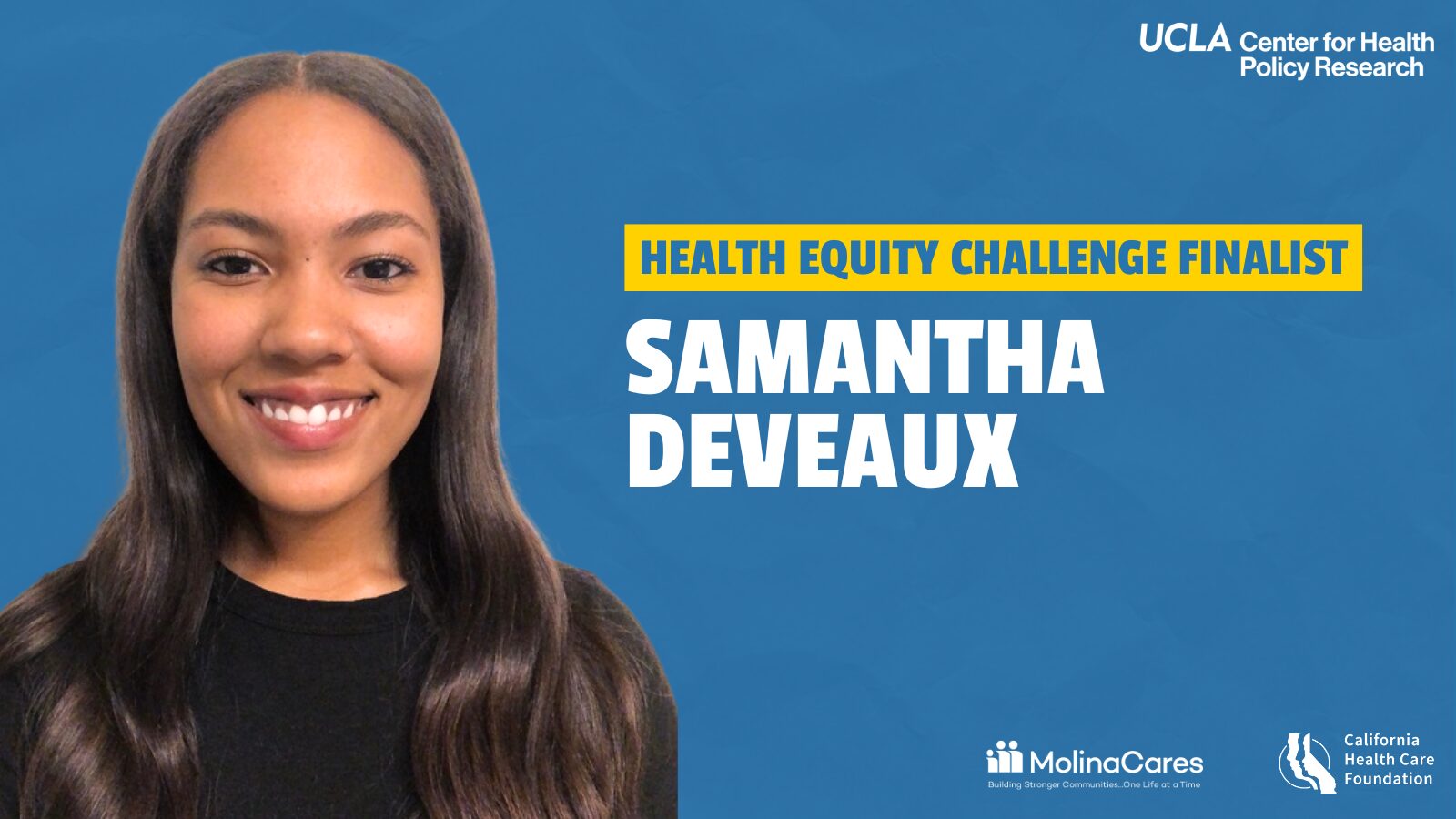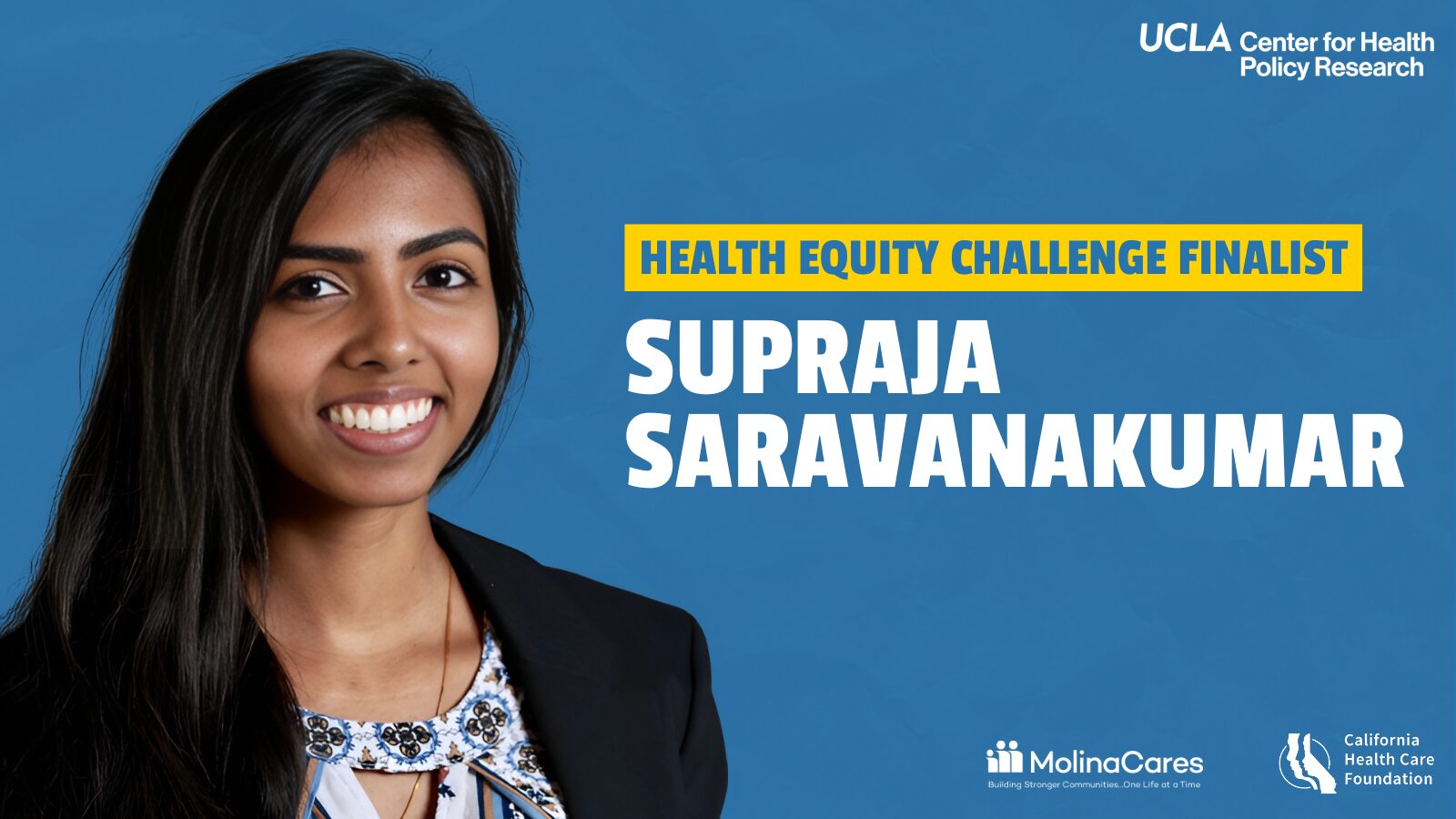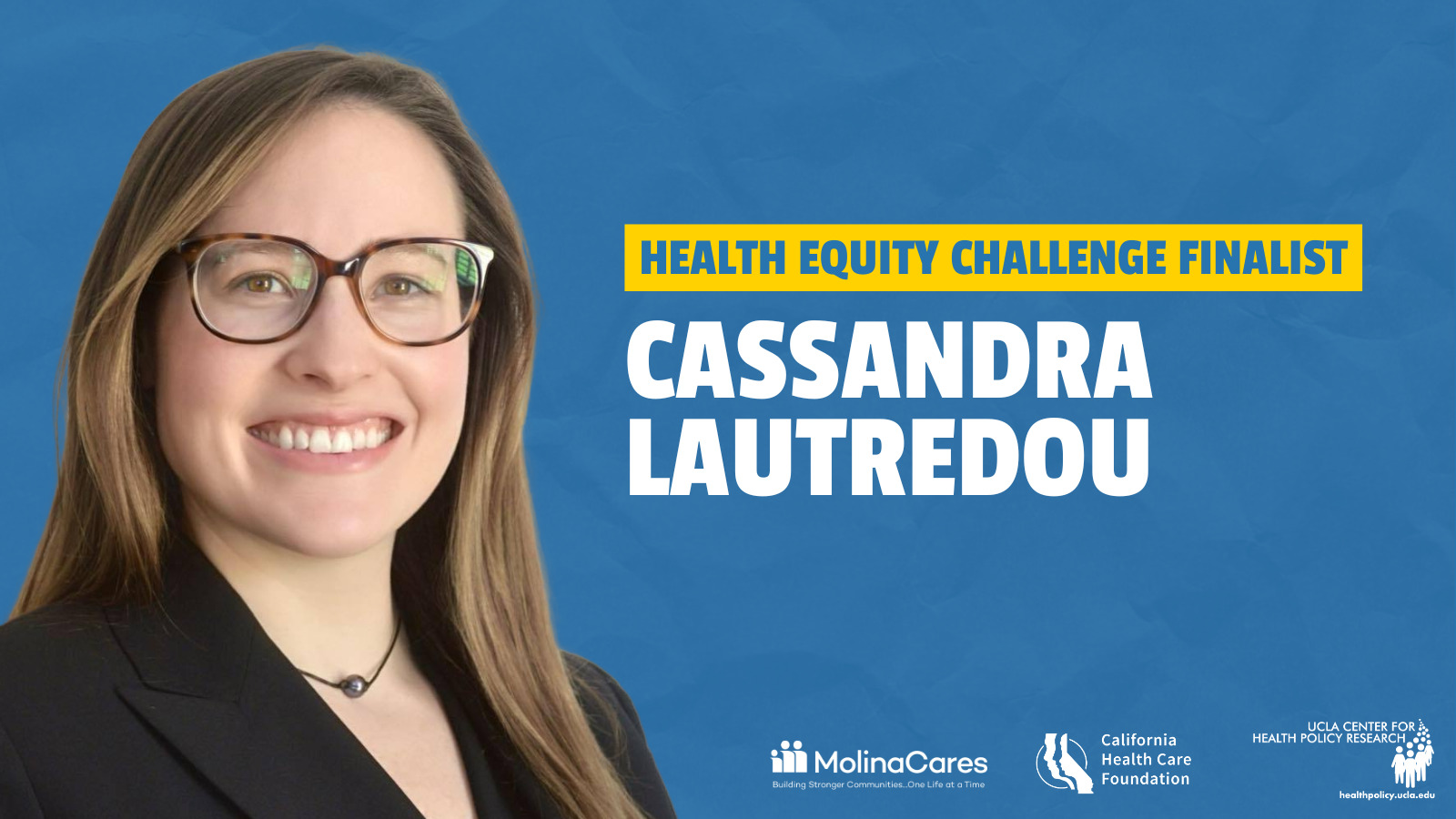
Los Angeles County is a sprawl that covers 4,084 square miles and is bound by salt water, desert, mountains, and asphalt. According to the Los Angeles Homeless Services Authority (LAHSA), 69,144 of roughly 9 million Los Angelenos were experiencing homelessness in 2022. Providing care to these folks has not only been the most rewarding, but also the most challenging part of my training in Infectious Diseases and Preventive Medicine at UCLA Health. Within the current constructs of our healthcare system, my individual actions as a physician can only go so far.
Aiming to address health at the both the individual and population level, I enrolled in a Master of Public Health (MPH) program at the UCLA Fielding School of Public Health. My goal was to learn how to develop, implement, and evaluate programs for populations that are so often overlooked. Within the first few weeks of fall quarter, as I was reflecting on a recent clinical rotation with the Los Angeles County Department of Health Services (DHS) Mobile Health Clinic, I realized that I had already identified a patient population and a mission.
It was July 2022, and I had applied gobs of sunscreen to my face in preparation for the high desert sun. Our van was packed full of medical professionals en route to several encampments in Service Planning Area (SPA) 1, which includes Lancaster, Palmdale, and other communities in Antelope Valley. Dr. Syed Parham Khalili, my future advisor and mentor for the UCLA Health Equity Challenge, was walking me through the then-necessary steps to obtain an X Waiver for outpatient use of buprenorphine for opiate use disorder. Our conversation drifted toward stimulant use disorder, and its treatment challenges. There is no pill, no shot, no magic bullet to address the nationwide stimulant use crisis. Contingency management, which uses motivational incentives to reduce stimulant use, is the only treatment that shown strong positive outcomes for these patients.
“There is no pill, no shot, no magic bullet to address the nationwide stimulant use crisis. Contingency management, which uses motivational incentives to reduce stimulant use, is the only treatment that shown strong positive outcomes for these patients.”
Potholes in the dirt road briefly interrupted our conversation, as the van turned left off California State Route 138. Driving a bit farther, we greeted a woman and her dog leaving their trailer. After introducing ourselves and the medical mission of the DHS Mobile Health Clinic, we offered water, snacks, sunscreen, and naloxone, asking if she needed any medical services. She declined but thanked us for the supplies and instructed us to head up a bit farther to a collection of trailers, trucks, and vans.
That morning we spoke with the men and women living in the area and provided medical care as needed. For one young man, we drained an abscess — a collection of infected pus underneath the skin — on his left forearm and prescribed an antibiotic. We distributed water, snacks, sunscreen, and naloxone (a lifesaving medication that can reverse opiate overdose). Leaving once the sun hit mid-sky, Dr. Khalili mentioned that the team would return within a couple weeks with the larger van, so more thorough medical visits could be conducted.
I reached back out to Dr. Khalili in September, wanting to see if we could collaborate on a project that combined the contingency management that we had previously discussed with pre-exposure prophylaxis (PrEP) for Human Immunodeficiency Virus (HIV). He readily agreed, and we got to work. Ultimately, we plan for the combined project to roll out in the next few months underneath the larger umbrella of the DHS Mobile Health Clinic’s overall contingency management program.

By Cassandra Lautredeou
2023 Health Equity Challenge Finalist
Dr. Cassandra Lautredou is a current second-year fellow in a combined Infectious Diseases and Preventive Medicine program at UCLA. She is currently a Master of Public Health student at the UCLA Fielding School of Public Health. Her research and quality improvement projects focus on the treatment and prevention of HIV, sexually transmitted infections, and viral hepatitis.
continue reading
Related Posts
As many as 50% of blind high school students drop out of high school and COVID only exacerbated this problem.
Coming from a low-income community of color, I personally witnessed how generations of systemic racism and economic corruption have led to a powerful mistrust in the health care system.
Postpartum depression (PPD) is a silent struggle for many new mothers, but for South Asian women, cultural stigmas and generational pressures often exacerbate this already challenging condition. As a woman of color and a first-generation college graduate, I have walked a path shaped by the nuances of both my cultural heritage and my academic pursuits.

